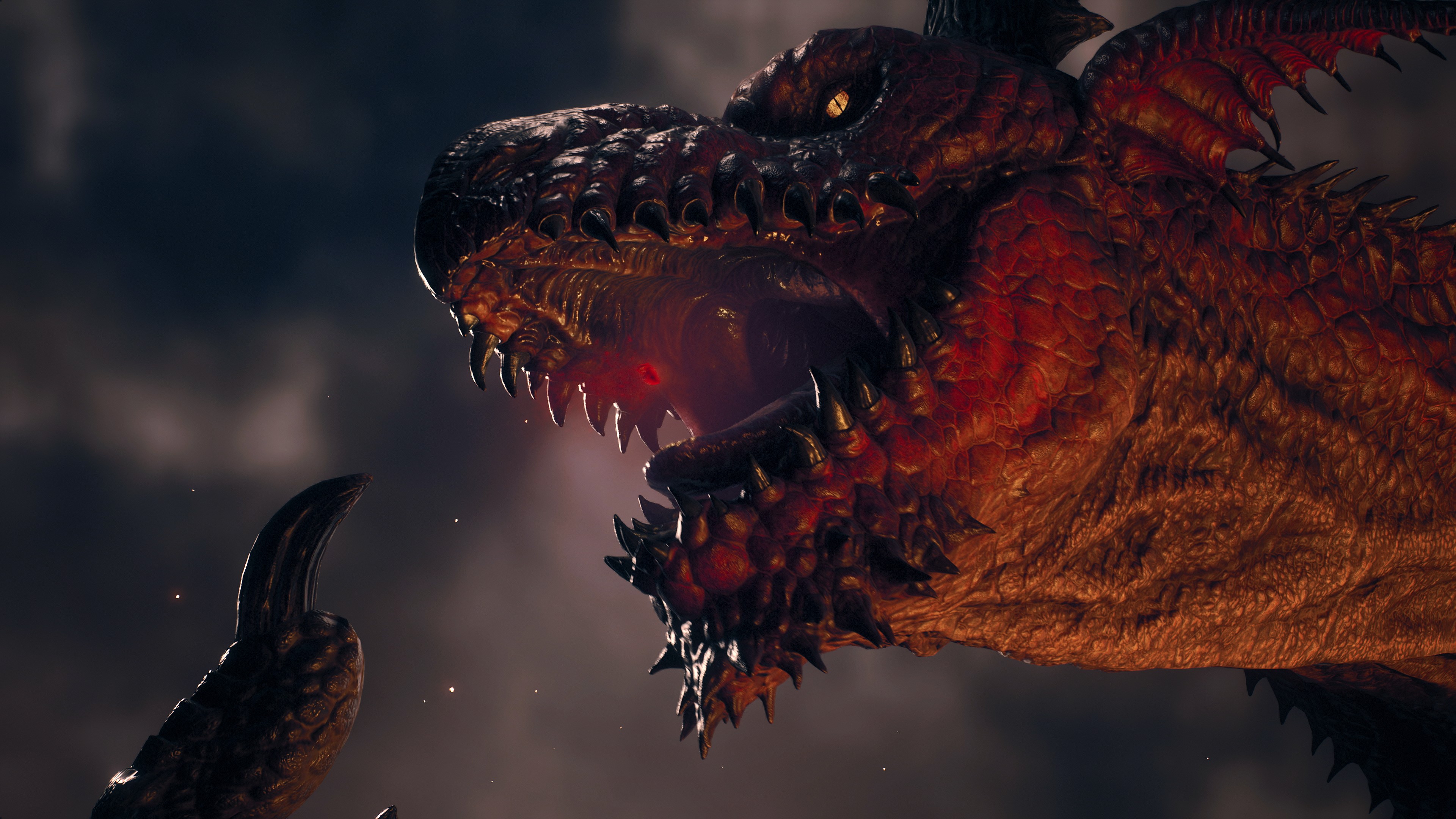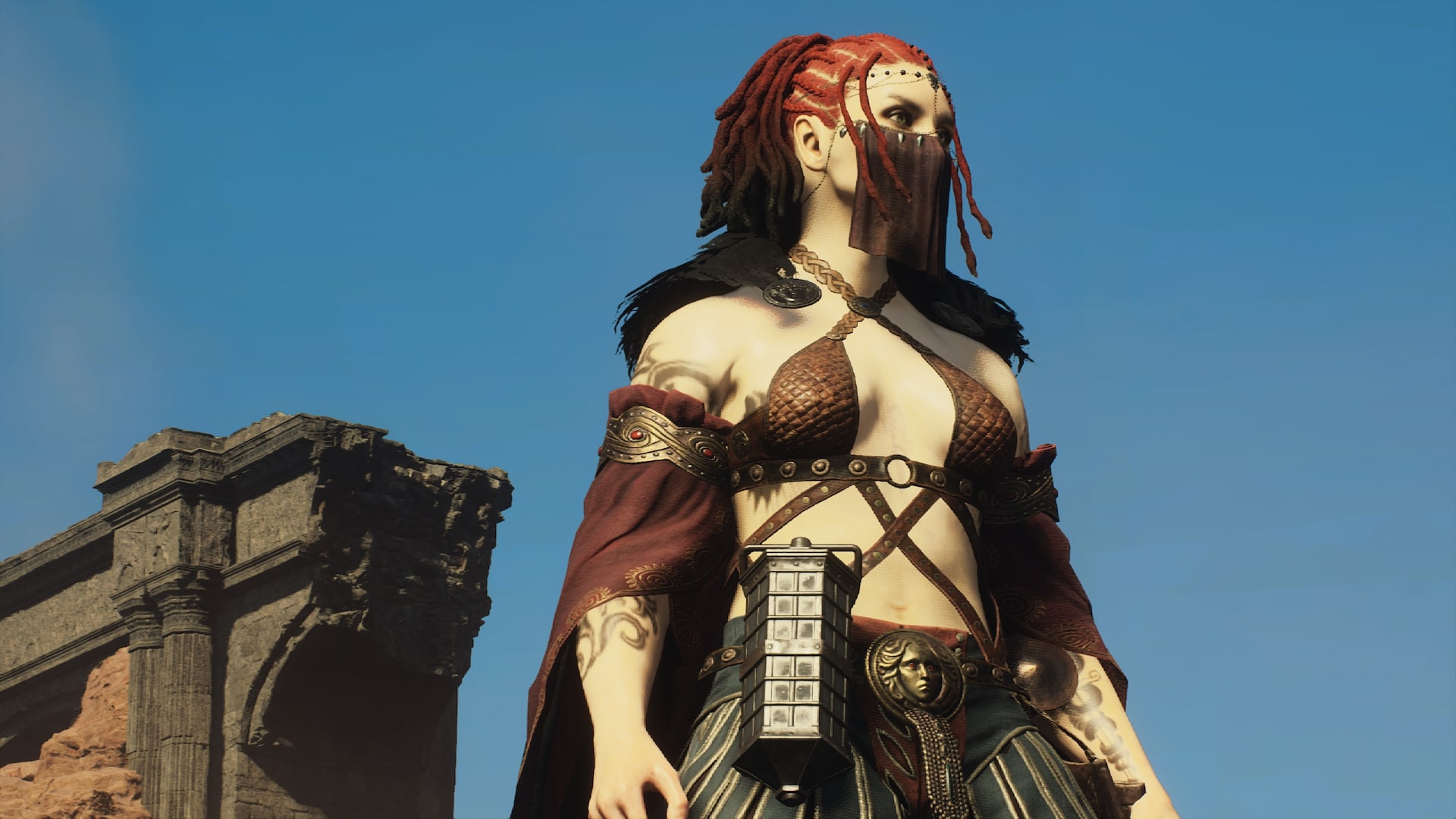
Do you play a lot of video games? Are you tired of playing video games? Do you wish that the NPCs in your video games would do all the fighting for you so that you can kick back, relax, and watch from the side lines? More importantly, do you still want to take all the credit for a hard-won battle? Boy howdy, does Dragon's Dogma 2 have just the class for you.
The moment I unlocked Trickster, the combat-free DD2 vocation, I was immediately confused. Touted as a magical, Arisen-only support class that serves to deal minimal damage while "sowing chaos on the battlefield" by way of illusory mischief, it sounded like everything I would not want to play as in this game. This is a combat-heavy RPG we're talking about, with each vocation offering a dynamic fighting style to suit any and all preferences – including, apparently, a preference for wildly chucking smoke at enemies instead of killing them. What drove me toward swapping my maxed-out Mystic Spearhand vocation to that of the Trickster was not a deep, abiding desire to resemble a very sexy censer-swinging high-fantasy priestess, but pure curiosity. What led me to level it up so fast? Well, that was a pure accident.
Smoke and mirrors
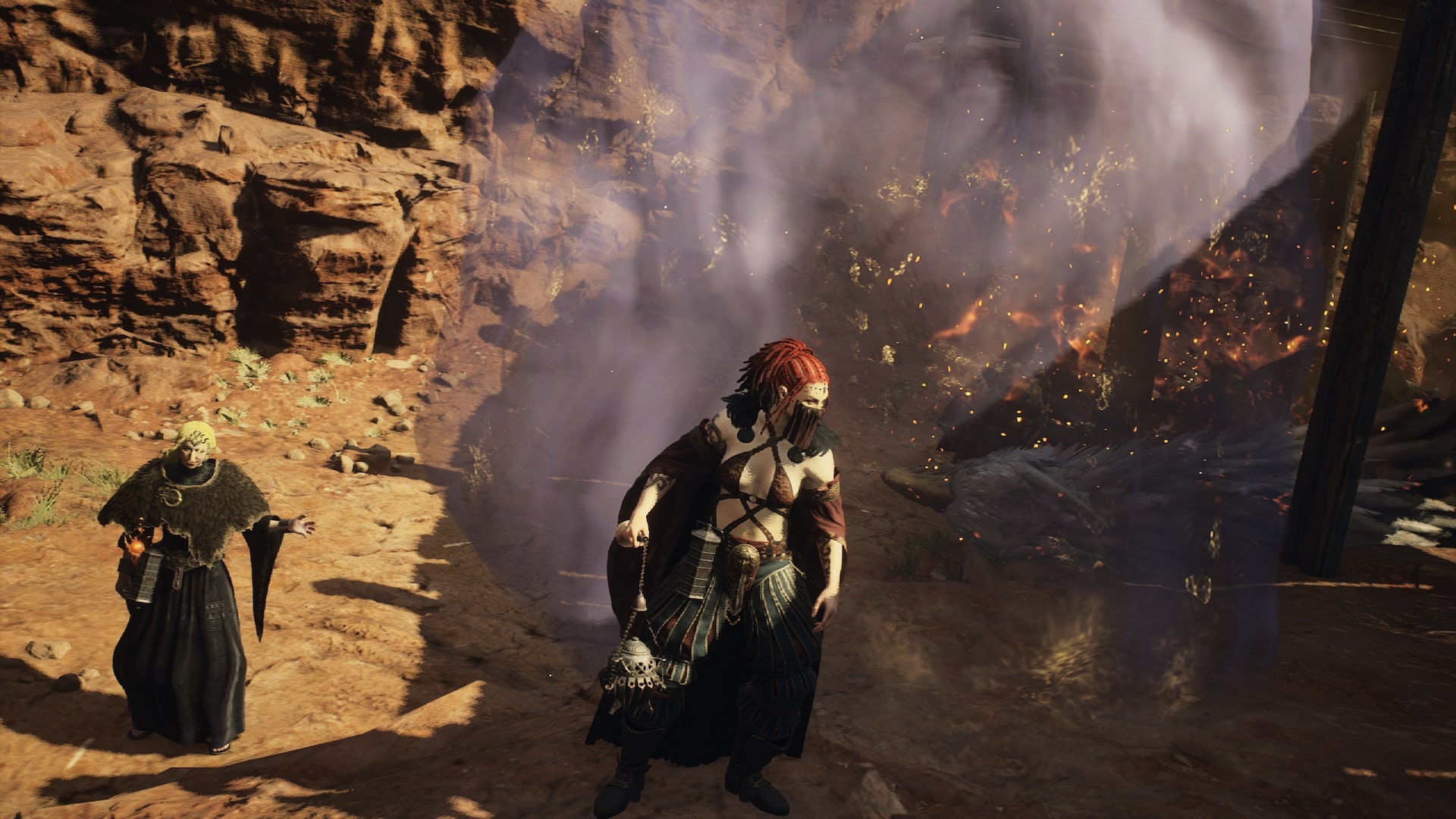
I've changed vocation twice so far in my first Dragon's Dogma 2 playthrough: from Thief to Mystic Spearhand, and then from Mystic Spearhand to the mysterious Trickster. As you can probably tell from the first two, my vocation choices would typically reflect a favored playstyle of rapid, close-quarters melee attacks over ranged or magical capabilities. Support buffs, heals, and damage from a distance are what my Pawns are for, always backing me up as I dig right into the bellies of the many, many beasts in need of slaying.
Off the back of that, you can imagine how tricky I found Trickster to master. Immediately I felt all but naked after making the swap, mourning my 680-damage spear, the fully-upgraded armor set I'd now have no use for, the pawns before me that I would no doubt have to dismiss for shame of them seeing me so weak. With a useless metal contraption in hand, belching smoke instead of the blood of my enemies, I feared I'd made a dumb mistake. I still question why the censer can't double-up as a very unwieldy flail, but I knew I'd have to make do. Why? Because Trickster sounded too ridiculous and un-RPG a class option to ignore while playing an RPG, that's why.
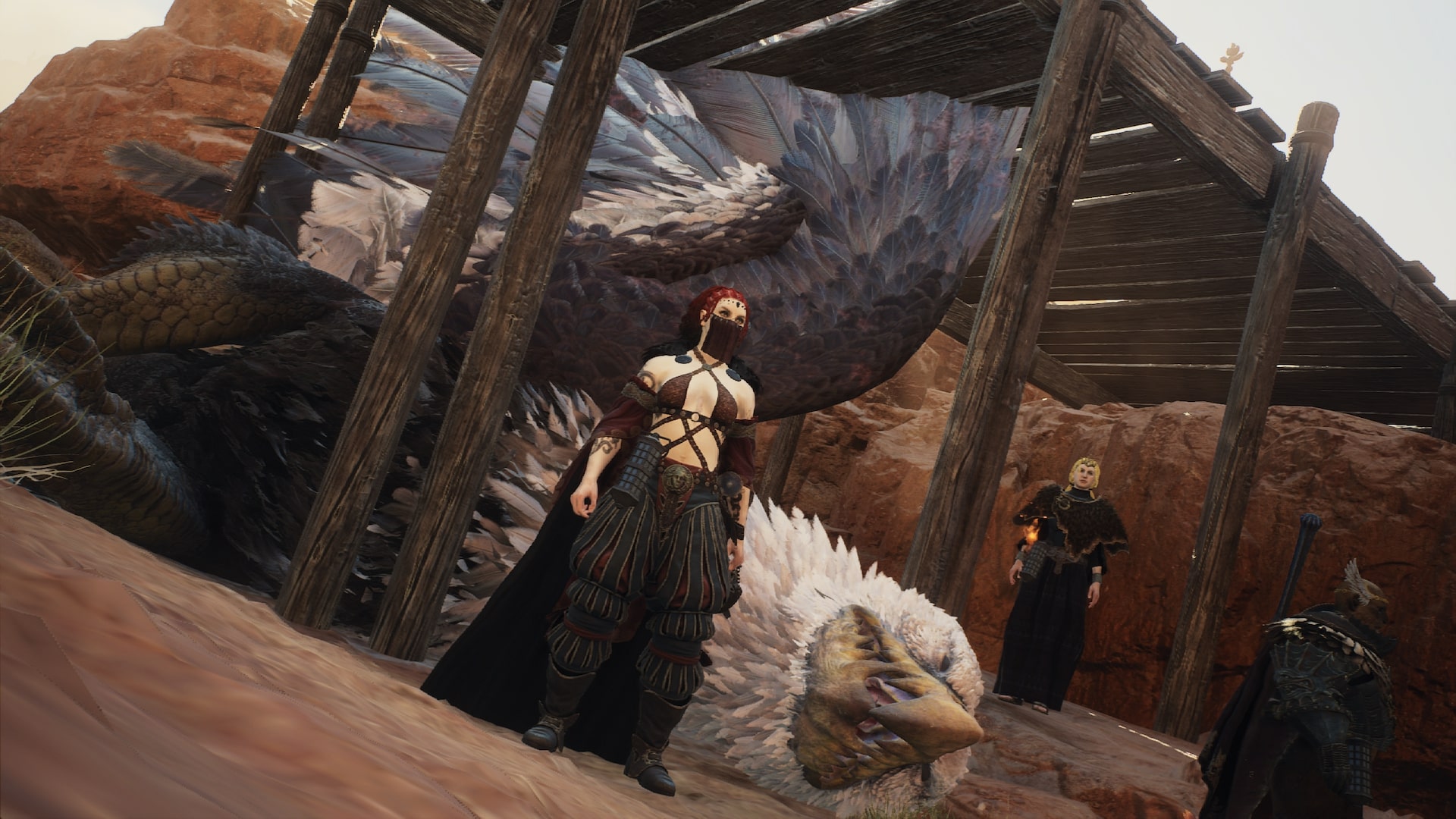
For the uninitiated or rightfully wary, the Trickster way is all about hoodwink and subterfuge. After conjuring a rather unconvincing simulacrum of yourself, you then waft smoke in enemies' faces to goad them into attacking the decoy while the rest of your Pawns have all the glory. With low armor stats and even fewer offense capabilities, Tricksters need to stay as far away from the frontlines as possible. Oh, you can also conjure a smoke wall to blind enemies with, and create a silly little fake platform to trick them into falling to their deaths from a great height. While all this sounds fun and kind of kitschy on paper, it was anything but in practice. A tactical approach means less action on my part, and that can make for an extremely drawn out battle.
Going from melting an ogre in less than a minute to taking about three to finish off a pack of hobgoblins is a sobering experience. Still, the total tactical change from close-quarters melee to pure battlefield manipulation did teach me a lot when it comes to broader strategy in Dragon's Dogma 2.
Humble braggard
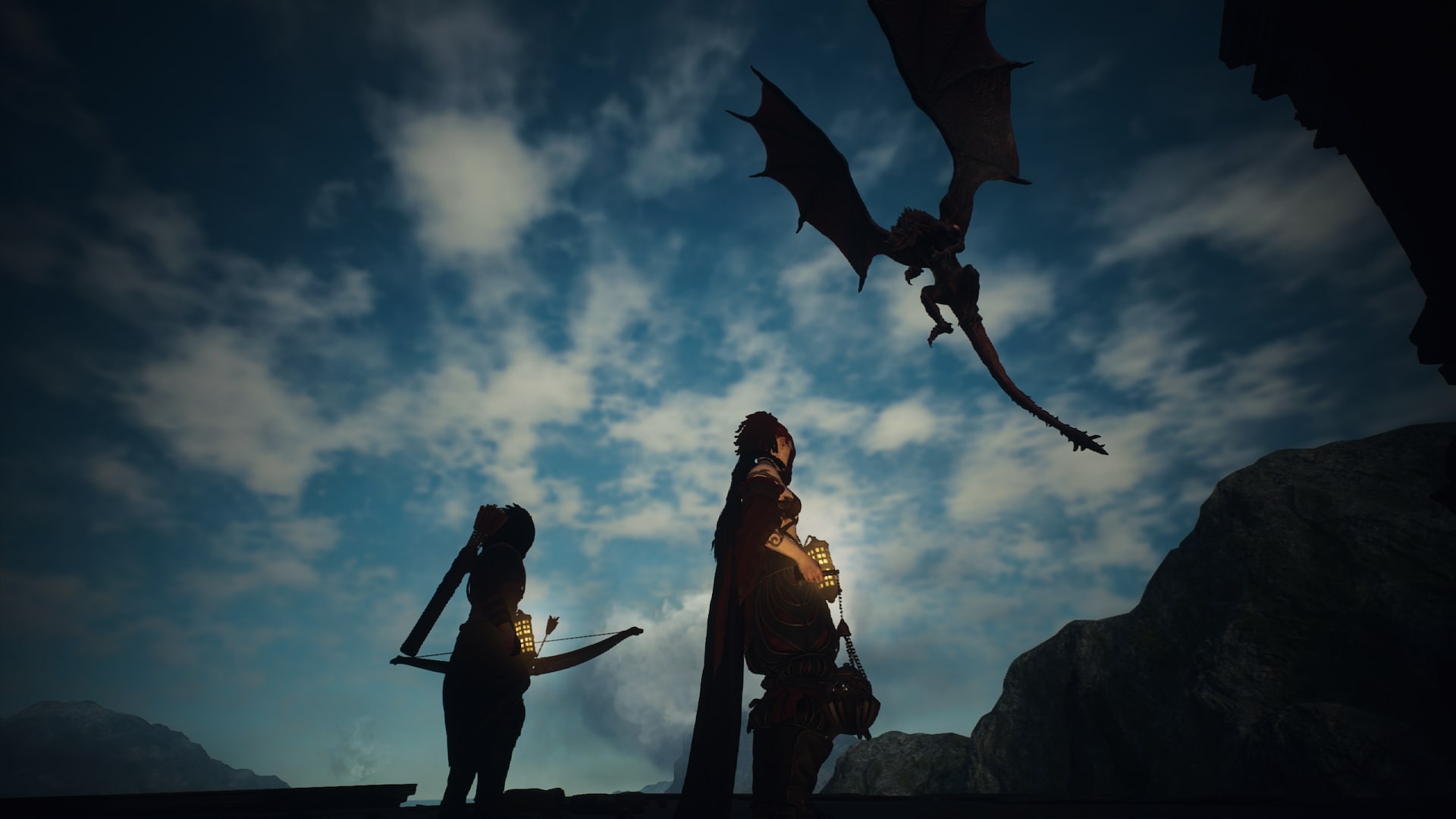
Despite how refreshing and surprisingly handy the vocation can be, I just do not have the patience to be a Trickster main.
For starters, I had to rethink my pawn line-up. I'd usually opt to complement my Main Pawn archer with a mage and either a fighter, warrior, or thief to aid me in getting up close and personal, but as the Trickster, it's all about range. Distance prevents Pawns getting wiped out quickly, as long as there's enough space for them to work with. I swapped out my beefy warrior for a maxed-out sorcerer I found out in Battahl and went on my merry way.
After a few scuffles and lots of terse onlooking, I got into the swing of what each battle might entail: I conjure my simulacrum a good ways away from my Pawns, goad enemies to attack it, throw a smoke bubble around them, and let my Pawns do all the hard work while I stand on a cliff and observe. "Nicely done, Arisen," my Main Pawn bellows proudly after each and every victory, and I don't have the heart to tell him that all I did was watch.
As tedious as it is to let my companions fight for me, the Trickster can be pretty effective. My above tactics worked well – albeit tediously slowly – against two of the bigger brutes I came across: a griffin and a minotaur. There's definitely something to be said about the value of taking all the heat off of your Pawns by sheer distraction, opening them up to deal devastating damage while the enemy is busy grasping at smoke. It still didn't make me feel victorious after any of the battles, but rather proud of my bot buddies instead thanks to the intuitive AI knowing exactly when to unleash hell. Now somehow at vocation level 8 after a mere two real-life hours of leveling up, I decided we were ready to face a lesser dragon as part of the main questline.
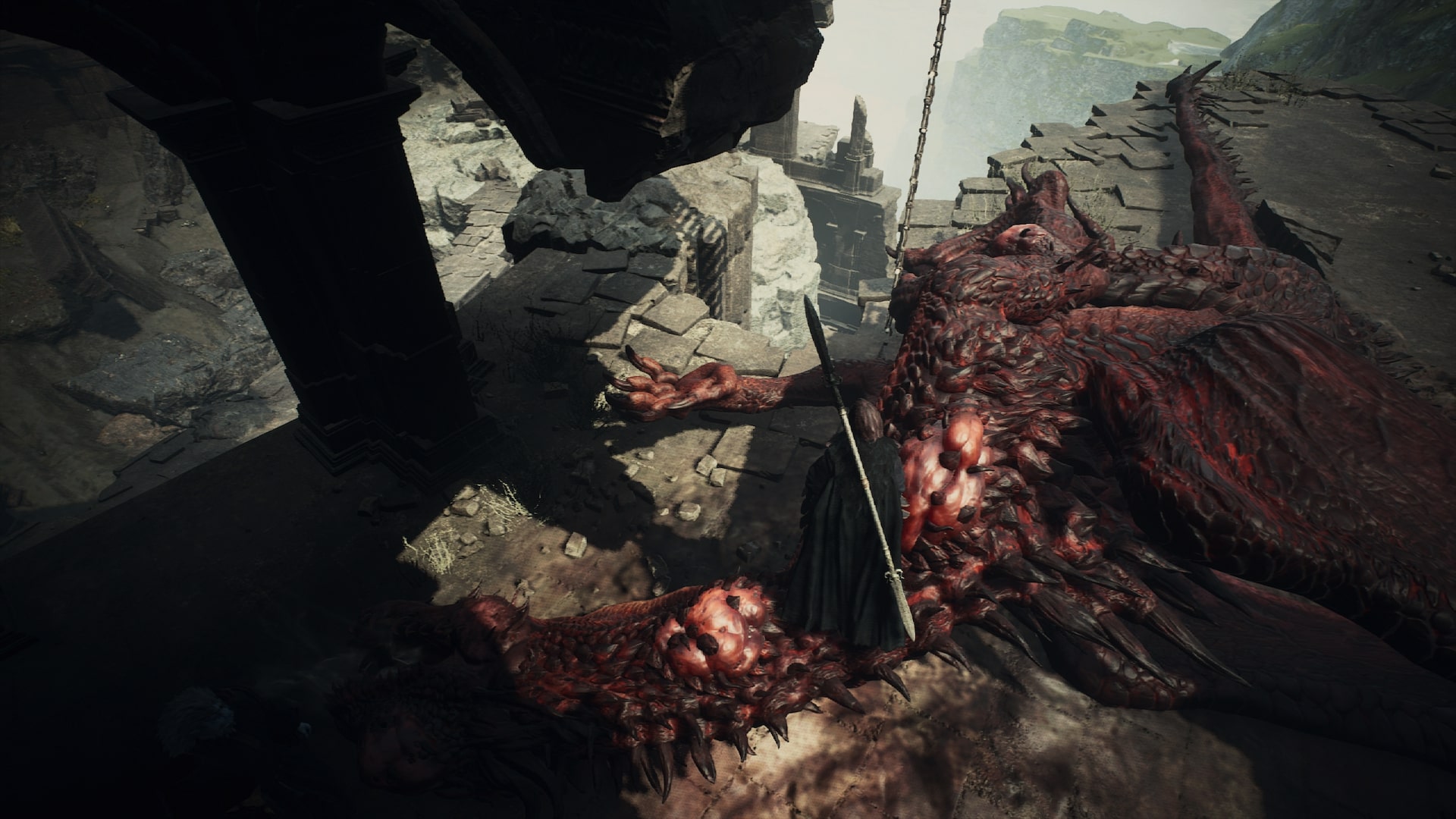
Alas, things quickly went sideways when we got to Dragonsbreath Tower. Even with Mystic Spearhand maister Sigurd at our side, things were moving far too slowly for my liking. My Trickster trickery felt like a cheap joke against the might of a dragon, still too powerful for my squishy spellcasters and kindhearted archer who immediately flung himself off a cliff to go to their aid. I had no choice but to abandon the situation, use a Ferrystone to head back to the city, and swap back to Mystic Spearhand.
I've made my peace with the fact that, despite how refreshing and surprisingly handy the vocation can be, I just do not have the patience to be a Trickster main. Perhaps I'll revisit it someday while confronting something other than a gigantic fire-breathing dragon, but for now, I'm still very much interested in playing this RPG with blades instead of brains.
Check out some of the best RPGs to play next, from Divinity: Original Sin 2 to Assassin's Creed Odyssey
